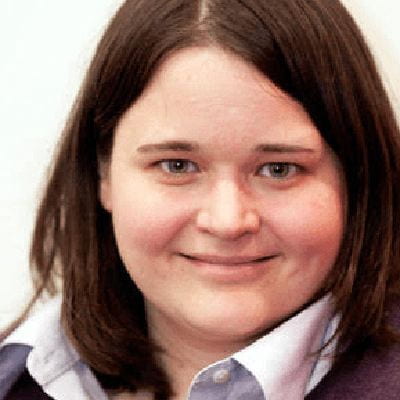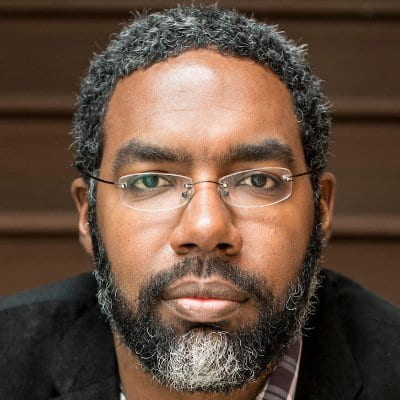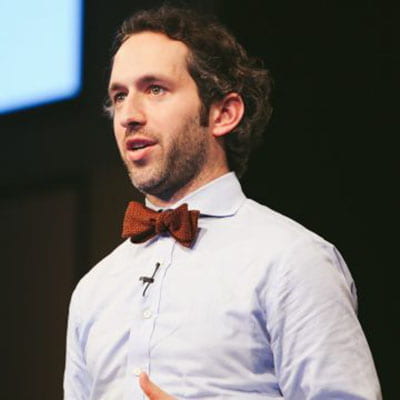Schedule
View the full detailed program & schedule here.
Friday, February 19
(All times are in Eastern standard time)
| 9:45am – 10am ET | Opening remarks |
| 10am – 10:30am | Amanda Cox – Keynote |
| 10:30am -11:30am | Paper panel: Politics Contributed sessions I (see below) |
| 11:30am- 12pm | Deen Freelon – Keynote |
| 12pm -1pm | Paper panel: Countering noise Contributed sessions II |
| 12pm – 1:30pm | Poster session |
| 1:30pm -2:30pm | Invited panel: Political forecasting meets journalism |
| 2:30pm – 3:30pm | Paper panel: Data and modeling Contributed sessions III |
| 3:30pm – 4pm | David Rothschild – Keynote |
| 4pm – 5pm | Contributed sessions IV |
| 5pm – 6pm | Invited panel: Conveying a clear message and uncertainty with graphics |
| 6pm | Closing |
Program
We have a great lineup of speakers and participants who will be guiding us through discussions of data journalism through different lenses. View the full detailed program & schedule here.
Keynote Speakers

Amanda Cox
Amanda Cox is a data editor at the New York Times. Beginning as a graphics editor in 2005, she has played a central role in the development of the Times’s data visualization efforts. Cox now guides how Computer-Assisted Reporting, The Upshot, Graphics, Interactives, data and statistics interact across the newsroom. In 2009, she was awarded the National Design Award and the Excellence in Statistical Reporting Award from the American Statistical Association in 2012.

Deen Freelon
Deen Freelon is an associate professor in the UNC Hussman School of Media and Journalism. Focusing on political expression through digital media as well as data science and computational methods for analyzing large digital datasets, Freelon has written both extensive scholarly literature as well as research-grade software. He has served as principal investigator on grants from the Knight Foundation, the Spencer Foundation and the U.S. Institute of Peace.

David Rothschild
David Rothschild is an economist at Microsoft Research. Exploring questions of mapping and updating public opinion, the market for news, the effect of advertising, finance, and an economist take on public policy, Rothschild works at the intersection of Economics and Social Science. He is a fellow at the Applied Statistics Center at Columbia and the Penn Program on Opinion Research and Election Studies.
Invited Panel: Political Forecasting Meets Journalism
Journalists are increasingly producing complex forecasting models to predict election results and other politically relevant outcomes. Such models hinge on available public opinion data and known regularities in political behavior, but presenting their predictions in easily interpretable ways is challenging. Panelists will share their experiences as journalists who are deeply involved in modeling and explaining political phenomena to help newsreaders and others make better decisions.

David Byler
Washington Post
Bio

Micah Cohen
FiveThirtyEight
Bio

Natalie Jackson
Public Religion Research Institute
Bio

Nick Diakopoulos (Chair)
Northwestern University
Bio
Invited Panel: Conveying a Clear Message and Uncertainty with Graphics
Traditional newspaper data graphics have used simplified charts to convey one or two core messages. However, most data and model predictions are subject to uncertainty. Responsible presentation of data to newsreaders calls for also communicating such uncertainty to support more informed decisions. The panelists will discuss the tension between goals of parsimony and narrative versus uncertainty and complexity, sharing strategies and examples from their own work.

Jen Christiansen
Scientific American
Bio

Catherine D’Ignazio
MIT
Bio

Jessica Hullman
Northwestern University
Bio
Jessica Hullman is an Associate Professor of Computer Science & Engineering at Northwestern University, where she directs the MU Collective with Matt Kay, a lab devoted to improving visualizations and data interfaces by leveraging theory and empirical findings on judgment under uncertainty. She is also an Associate Professor in the Medill School of Journalism at Northwestern. From January 2015 to July 2018 she was an Assistant Professor in the iSchool at University of Washington and an adjunct Assistant Professor at UW CSE, where she was a member of the Interactive Data Lab and the DataLab.

Alberto Cairo (Chair)
University of Miami
Bio
View the full detailed program & schedule here.
Panel: Politics
Moderator: Meg Heckman, Northeastern University (*presenter)
Daniel Muise, Homa Hosseinmardi, Baird Howland, Markus Mobius, David Rothschild and Duncan Watts.
Growing Separation in the Television News Audience: Evidence from Three Years of Nielsen Panel Data
Irena Fischer-Hwang, Dylan Grosz, Xinlan Emily Hu, Anjini Karthik and Vivian Yang.
Disarming Loaded Words: Addressing Gender Bias in Political Reporting
Victor Soares Bursztyn and Larry Birnbaum.
Thousands of Small, Constant Rallies: A Large-Scale Analysis of Partisan WhatsApp Groups
*Rahul Bhargava, Cindy Bishop and Ethan Zuckerman.
Mapping and Visualizing News Images for Media Research
Panel: Countering Noise, Bias & Uncertainty
Moderator: Sue Robinson, University of Wisconsin-Madison (*presenter)
*Sean Fischer, Kokil Jaidka and Yphtach Lelkes.
Topical Biases in Local News Curation: An Audit of Google News.
Brian Felipe Keith Norambuena, Michael Horning and Tanushree Mitra.
Evaluating the Inverted Pyramid Structure through Automatic 5W1H Extraction and Summarization
*Yea Seul Kim, Jake Hofman and Dan Goldstein.
Effectively communicating effect size.
*Daniel Trielli and Nicholas Diakopoulos.
How Journalists Can Systematically Critique Algorithms
Panel: Data & Modeling in the Newsroom
Moderator: Meredith Broussard, New York University (*presenter)
*Jeff Kao and *Jack Gillum.
Reverse-Engineering an Audio Aggression Detection Algorithm | How we tested and analyzed software that claims to spot aggression from your voice (ProPublica)
Jonathan Stray and Karen Hao.
Interactive Visualization of Fairness Tradeoffs (MIT Tech Review)
*Leonard Bronner, Al Johri and Jeremy Bowers.
Predicting Elections using Live Data at The Washington Post (The Washington Post)
*James Randerson, Karl Bjelland and Karl Roos.
POLITICO Pro Intelligence: A novel digital platform for customizable analysis of political, policy and legislative data
Contributed Sessions I — 10:30am – 11:30am
Covering COVID I
- Arkansascovid: How We Ran A COVID News Website Through a College Journalism Class
– Rob Wells, Ph.D., Assistant Professor, Univ. of Arkansas, Editor of Arkansascovid.com
– Katy Seiter, Graduate Student, Univ. of Arkansas, Assistant Editor, Arkansascovid.com
– Mary Hennigan, Student, Univ. of Arkansas, Assistant Editor, Arkansascovid.com - COVID-19 and a corresponding shift in collaborative data journalism
– Cheryl Phillips, Big Local News– Ben Welsh, Los Angeles Times
- Covering COVID-19 with automated journalism: leveraging technological innovation in times of crisis
– Samuel Danzon-Chambaud, School of Communications, Dublin City University - Documenting COVID-19, collecting unstructured and confidential data from FOIA
– Derek Kravitz, Brown Institute for Media Innovation– Georgia Gee, Brown Institute for Media Innovation
– Kyra Senese, Brown Institute for Media Innovation
Data Journalism Practices I
- Digital go-alongs: recounting individual journeys through personal data as journalistic stories
– Francesca Morini, Södertörn University and UCLab, University of Applied Sciences Potsdam– Jona Pomerance, UCLab, University of Applied Sciences Potsdam
– Anna Meide, UCLab, University of Applied Sciences Potsdam
– Tim Hönig, UCLab, University of Applied Sciences Potsdam
– Tạ Đoàn Vi Quân, UCLab, University of Applied Sciences Potsdam
– Marian Dörk, UCLab, University of Applied Sciences Potsdam
– Ester Appelgren, Södertörn University - How Data Journalism Engages Audience
– Avner Kantor, University of Haifa– Sheizaf Rafaeli, University of Haifa
- Newsroom Sensemaking: A Process Model for Epistemic Humility in Data and Computational Journalism
– Charles Berret, University of British Columbia– Stephen Kasica, University of British Columbia
– Tamara Munzner, University of British Columbia - From No Prereqs to Data Storytellers: Borrowing from the Journalist’s Toolbox to Teach Students to Communicate with Data
– Sara Stoudt, Smith College
Online news sources: Quality and Quantity
- How to be successful in social media? A causal analysis of 8 media’s news sharing practices on Twitter
– Kunwoo Park, Soongsil University - What the metrics say. Online news popularity on the web and social media pages of mainstream media outlets
– Kenza Lamot, University of Antwerp - Predicting quality in online journalism through explainable AI
– Catherine Sotirakou– Hajo G. Boomgaarden
– Constantinos Mourlas - 365 Dots in 2018, 2019, and 2020: Quantifying Attention of News Sources
– Alexander C. Nwala, Researcher, Observatory on Social Media, Indiana University, Bloomington, Indiana, USA– Michele C. Weigle, Web Science & Digital Libraries Research Group, Department of Computer Science, Old Dominion University, Norfolk, Virginia, USA
– Michael L. Nelson, Web Science & Digital Libraries Research Group, Department of Computer Science, Old Dominion University, Norfolk, Virginia, USA
Contributed Sessions II — 12pm – 1pm (two sessions will run until 1:15pm)
The new Data Journalism Handbook: preview, walkthrough and Q&A (Contributed Panel)
– Jonathan Gray, King’s College London
– Liliana Bounegru, King’s College London
– María Isabel Magaña, La Sabana University
– Pınar Dağ, University of Kadir Has / VOYD
– Kumar Sambhav, Land Conflict Watch
– Crina Boros, Freelance journalist & City University
– Catherine D’Ignazio, Massachusetts Institute of Technology
– Elliot Bentley, The Wall Street Journal
– Jonathan Stray, Partnership on AI
– Eddy Borges-Rey, Northwestern University
– Meredith K Broussard, New York University
– Stefan Candea, University of Westminster
– Caitlin Petre, Rutgers University
– Simon Rogers, Google News Lab
– Eva Constantaras, Data Nomads
– Eliana Vaca, Freelance Designer
– Cheryl Phillips, Stanford University
– Seth Lewis, University of Oregon/University of Oxford
– Wiebke Loosen, Hans-Bredow-Institut
– Chris Anderson, University of Leeds
– Paul Bradshaw, Birmingham City University / BBC
Reporting on Violence, Bias and Conspiracies
- Documenting police violence: a comparative study of the watchdog approach used in French, English and American data journalism projects.
– Rayya Roumanos, Bordeaux-Montaigne University (France)
– Olivier Le Deuff, Bordeaux-Montaigne University (France) - HateMap: Computational methods for monitoring hate incidents through online news media
– Clark Freifeld, Northeastern University
– Yulin Hswen, University of California, San Francisco
– Bryan Asare, Guilford College - VizPol: Real-Time Symbol Recognition for Field Reporting and Image Tagging
– Ishaan Jhaveri, Tow Center for Digital Journalism, Graduate School of Journalism, Columbia University
– Guangxing Han, School of Engineering and Applied Science, Columbia University
– Svebor Karaman, School of Engineering and Applied Science, Columbia University
– Xu Zhang, School of Engineering and Applied Science, Columbia University
– Bhaskar Ghosh, Graduate School of Journalism, Columbia University
– Nina Berman, Graduate School of Journalism, Columbia University
– Susan McGregor, Data Science Institute, Columbia University
– Shih-Fu Chang, School of Engineering and Applied Science, Columbia University - RadiTube: A New Tool for Navigating Fringe YouTube Communities
– Cameron Ballard, NYU Tandon
– Erik van Zummeren, NYU ITP - Investigating systemic bias in Canada’s prisons
– Tom Cardoso, The Globe and Mail
Data Journalism Practices II
- Artificial Intelligence in Chinese Newsrooms
– Joanne Kuai, Karlstad University - Exploring Together: How Might we Leverage Inter-organisational Collaboration for Journalism Innovation?
– Agnes Stenbom, KTH Royal Institute of Technology
– Charlie Beckett, LSE POLIS/JournalismAI - Using Data in Pursuit of Solutions Journalism
– Matthew Kauffman, Solutions Journalism Network - News Discourse Patterns: A Roadmap for Computational Journalism
– Alexander Spangher, University of Southern California
– Jonathan May, University of Southern California - Datamations: Animated Explanations of Data Analysis Pipelines
– Xiaoying Pu, Computer Science and Engineering, University of Michigan, Ann Arbor, Michigan, United States– Sean Kross, The University of California San Diego, La Jolla, California, United States
– Jake M. Hofman, Microsoft Research, NYC, New York, United States
– Daniel G. Goldstein, Microsoft Research, New York, New York, United States
Contributed Sessions III — 2:30pm – 3:30pm
Differential Privacy in the 2020 Census: Balancing Confidentiality and Data Utility (Contributed Panel)
– Maria Fillipelli, New America
– danah boyd, Microsoft Research
– Terry Ao Minnis, Asian Americans Advancing Justice – AAJC
– Cara Brumfield, Georgetown Center on Poverty & Inequality
– Jae June Lee, Georgetown Center on Poverty & Inequality
Covering COVID II
- The COVID-19 Infodemic: Twitter versus Facebook
– Kai-Cheng Yang, Indiana University Bloomington
– Francesco Pierri, Politecnico di Milano
– Pik-Mai Hui, Indiana University Bloomington
– David Axelrod, Indiana University Bloomington
– Christopher Torres-Lugo, Indiana University Bloomington
– John Bryden, Indiana University Bloomington
– Filippo Menczer, Indiana University Bloomington - Large Scale Social Media Data Analysis to Understand Depression During the COVID-19 Pandemic
– Nusrat Armin, University of Mississippi
– Dawn Wilkins, University of Mississippi
– Mahmudul Hasan, University of South Carolina
– Naeemul Hassan, University of Maryland - Local news availability does not increase pro-social pandemic response
– Sean Fischer, Annenberg School for Communication - Exploring the Information Landscape of News using Narrative Maps
– Brian Keith Norambuena, Virginia Tech
– Tanushree Mitra, University of Washington
– Chris North, Virginia Tech
Trust and Misinformation
- Right and left, partisanship predicts (asymmetric) vulnerability to misinformation
– Dimitar Nikolov, Observatory on Social Media, Indiana University, USA
– Alessandro Flammini, Observatory on Social Media, Indiana University, USA
– Filippo Menczer, Observatory on Social Media, Indiana University, USA - Demonstrating Automated Disinformation
– Alex Calderwood, Columbia University
– Eric Bolton, Brown Institute for Media Innovation - 78 Days – A Photographic Archive of Trust and Mistrust in our Digital Age
– Jonathan Dotan, Stanford University - The Citizen Browser Project — Auditing the Algorithms of Disinformation
– Julia Angwin, The Markup
– Surya Mattu, The Markup
Tools and assessment
- Ring signatures for anonymous sourcing in journalism
– Jayshree Sarathy, Harvard College
– Catherine Kerner, Harvard College - Census 2020: A Computational Law Approach
– Alexander Spangher, University of Southern California
– Jonathan May, University of Southern California - A Framework for Assessing Changes in the Local Media Environment
– Joshua P. Darr, Louisiana State University
– Matthew P. Hitt, Colorado State University
– Johanna L. Dunaway, Texas A&M University - 5 Ways to Introduce Design Justice to Your Newsroom
– Ting Zhang, Columbia Journalism School
Contributed Sessions IV — 4pm – 5pm
Storytelling with Numbers amid a Pandemic and Toxic Misinformation (Contributed Session)
– Jena Barchas-Lichtenstein, Knology
– Uduak Grace Thomas, Knology
– Laura Santhanam, PBS NewsHour
– Jacklyn Grace Lacey, American Museum of Natural History
Covering COVID III
- Equity, Epidemiology, and Empathy: The Power of Data in the Midst of a Pandemic
– Vilas Dhar, President at Patrick J. McGovern Foundation
– Kate Miller, PhD, MPH, Senior Scientist at Ariadne Labs
– Stuart A. Thompson, Graphic Director at the New York Times Opinion
– Rebecca Weintraub, MD, COVID-19 Vaccine Delivery Lead at Ariadne Labs and Physician at Brigham and Women’s Hospital - A pandemic in graphics: Covering coronavirus from a visual perspective research
– Adrián Blanco, Columbia University, The Washington Post
– Javier Sauras, Columbia University - Visualizing the Pandemic: 1 Year Later
– Dylan Halpern, Center for Spatial Data Science, University of Chicago
– Marynia Kolak, Center for Spatial Data Science, University of Chicago
– Xun Li, Center for Spatial Data Science, University of Chicago
– Qinyun Lin, Center for Spatial Data Science, University of Chicago - MISSING THEM, a data-driven COVID-19 memorial project by THE CITY nonprofit newsroom
– Anjali Tsui, Stabile Center for Investigative Journalism
– Terry Parris Jr., THE CITY
– Derek Kravitz, Columbia Journalism School
Summarization and Recommendation
- Is the human news worker becoming less journalistic? The changing role of gatekeeping in the age of computational journalism
– Hannes Cools, University of Leuven
– Michaël Opgenhaffen, University of Leuven
– Baldwin Van Gorp, University of Leuven - Proposal for Extractive Summarization Method of News Articles and Collaboration with Editors in Newsroom
– Shotaro Ishihara, Nikkei, Inc.
– Norihiko Sawa, Nikkei, Inc. - Recommendation Horizon
– Eric Bolton, Brown Institute for Media Innovation - Persine: Reproducible research on algorithmic recommendation systems
– Jonathan Soma, Columbia Journalism School



